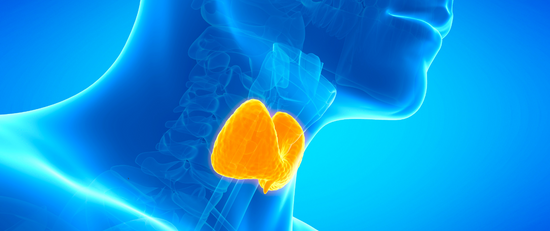4 Ways to Restore Your Natural
Circadian Rhythm For More Restful Sleep
By Dr. Kevin Passero
Do you have trouble falling asleep? Or perhaps you fall asleep easily only to wake up several hours later unable to fall back asleep — tossing and turning until your alarm goes off.
If this describes you with any frequency, you may be suffering from insomnia. This common sleep disorder affects as many as one-third of the adult population worldwide. It is more common in women, but quality of sleep often decreases equally in both women and men as we age.
One of the major causes of insomnia is a disruption in the circadian rhythm.
The body has a natural circadian rhythm which is dictated by the production of various hormones. The two most important hormones in the sleep/wake cycle pattern are cortisol and melatonin.
Cortisol rises to wake us up in the morning and keeps us going throughout the day. Melatonin rises in the evening and is responsible for making us feel sleepy and ready to go to bed.
When these two hormones get out of rhythm it throws our whole sleep/wake cycle out of balance and can contribute to insomnia. While there are many other factors that can contribute to insomnia (stress, chronic pain, sleep apnea, extreme temperature fluctuations, environmental noise or changes, medication side effects, caffeine intake and lifestyle factors) addressing your body’s natural circadian rhythm is a good place to start.
These tips will help you get your system back on the right track!
Establish a Consistent Bedtime Routine
A bedtime routine will help get your body and brain back into a normal circadian rhythm. Try to go to bed at the same time each evening and have a pre-bed ritual that helps relax your body and mind. Things like a warm bath, a good book or practicing relaxation techniques are good places to start.
Avoid Blue Light Stimuli
The light that is emitted from cell phones, computers and TV screens is called blue light and it interferes with the signaling that tells your brain to produce melatonin. Because melatonin is the body’s sleep hormone, anything that interferes with its production is going to interfere with your sleep. If you cannot avoid using your cell phone or computer before bed, try using blue light blocking sunglasses after 7 pm.
Exercise in the Morning
Exercising first thing in the morning helps to boost morning cortisol levels and will give you adequate energy throughout the day. It will also ensure that you are tired in the evening.
Spend Time Outside
Many of us (especially in the winter) go from one artificially lighted space to another and do not spend any time in real sunlight. Our circadian rhythms are dependent on the day/night cycle. When you spend time outside your body becomes in-tune with when it should be awake and producing cortisol and when it should be sleeping and producing melatonin. Try adding in a morning or afternoon stroll outside each day to get exposure to direct sunlight.
For patients I see in my clinic who need a little extra help falling asleep and staying asleep, I have had lots of success with recommending various sleep nutrients such as a combination of regular melatonin, delayed-release melatonin, PharmaGABA, ashwagandha and passion flower. These nutrients have worked so well that I combined them into one convenient supplement called Durable SLEEP®.
This gentle yet effective formula combines two forms of melatonin with clinically studied GABA and herbal extracts to help you fall—and stay—asleep, so you can wake up refreshed without morning drowsiness. Click here to learn more about Durable SLEEP.




